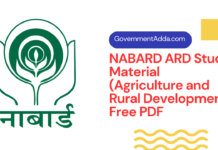Organic farming is a method of crop and livestock production that involves much more than choosing not to use pesticides, fertilizers, genetically modified organisms, antibiotics and growth hormones.
Organic production is a holistic system designed to optimize the productivity and fitness of diverse communities within the agro-ecosystem, including soil organisms, plants, livestock and people. The principal goal of organic production is to develop enterprises that are sustainable and harmonious with the environment.
The general principles of organic production, from the Canadian Organic Standards (2006), include the following:
- protect the environment, minimize soil degradation and erosion, decrease pollution, optimize biological productivity and promote a sound state of health
- maintain long-term soil fertility by optimizing conditions for biological activity within the soil
- maintain biological diversity within the system
- recycle materials and resources to the greatest extent possible within the enterprise
- provide attentive care that promotes the health and meets the behavioural needs of livestock
- prepare organic products, emphasizing careful processing, and handling methods in order to maintain the organic integrity and vital qualities of the products at all stages of production
- rely on renewable resources in locally organized agricultural systems
The main reasons farmers state for wanting to farm organically are their concerns for the environment and about working with agricultural chemicals in conventional farming systems. There is also an issue with the amount of energy used in agriculture, since many farm chemicals require energy intensive manufacturing processes that rely heavily on fossil fuels. Organic farmers find their method of farming to be profitable and personally rewarding.
Issues and challenges for organic farming
Organic farming focus on sustainability, it is an agriculture system without the use of synthetically fertilizers, pesticides, growth regulators etc. Organic farming can not only improve soil fertility but it can also help in increasing farmers income. However, despite benefits, the organic farming system is not so popular among farmers.
As per recent survey-based study organic farming faces following key issues which affect the livelihood and income of farmers :
- Poor Supply Chain
The supply chain is underdeveloped specifically in hilly regions and tribal belts, also there is lack of storage facilities which leads to spoilage. Due to infrastructural bottlenecks, only a few companies mostly source from the Northeastern states and tribal belts, despite their high potential in organic farming. Along with that farmers lack the right linkages and are therefore dependent on middlemen.
- Export certification
As per APEDA third-party certification is required for exports. This limitation on exports is not good. Unless farmers under Participatory Guarantee System(which is a self-certification process)are allowed to export, they cannot get the premium price.
- Risk of Yield Loss
When farmer shift from chemical-based farming to organic farming, there is a risk of yield loss. Various countries such as UK, provide subsidies to compensate for the yield loss due to such shifting. However, in India, does not provide such subsidy. Along with that most of the subsidies are for chemical-based inputs. Since the cost of laboratory testing and third-party certification in case of organic farming is high a subsidy can provide a cushion for organic farming.
- Good quality organic inputs
There is a shortage of quality inputs which further increases the risk of loss of yield. So there should be more focus on crop-specific and region-specific research and development (R&D) on organic inputs.
- Lack of policy for organic farming
The biggest challenge in case of organic farming is the lack of an organic policy for the domestic market and imports. Due to the absence of regulation, it is not possible to differentiate an organic product from a conventional product. Without any policy, it difficult to punish fraudulent suppliers.
Organic farming is sustainable agriculture practice and if proper policy initiatives are taken organic farming is expected to grow at 20% which will help in improving farmers income.
| NABARD Grade A Assistant Manager 2018 Important Links | ||
| 1. | NABARD Assistant Manager Grade A 2018 Recruitment Notification Apply Online | Click Here |
| 2. | NABARD Grade A Officers Exam Syllabus 2018 – Prelims/Mains | Click Here |
| 3. | NABARD Grade A Officers Exam Pattern 2018 – Prelims/Mains | Click Here |
| 4. | NABARD Grade A Assistant Manager Previous Year Question Papers PDF – Download Here | Click Here |
| 5. | NABARD Grade A Previous Year Cut Off Marks | 2017, 2016, 2015 Cut Off Marks | Click Here |
| 6. | NABARD Grade A Assistant Manager Study Material | Books | ESI | ARD | English | GK Pdfs | Click Here |
| 7. | NABARD Grade A Assistant Manager ARD Agriculture and Rural Development PDF | Notes | Books | Click Here |
| 8.
9. 10. |
NABARD Grade A Assistant Manager Study Plan | How To Prepare For NABARD Grade A Officer Exam
NABARD ARD Study Plan & Preparation Tips and Tricks for Agriculture and Rural Development (ARD) NABARD ESI Study Plan & Preparation Tips and Tricks for Economic & Social Issues(ESI) |
Click Here |













